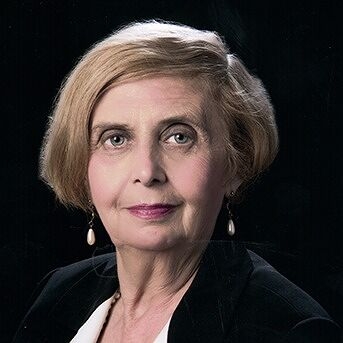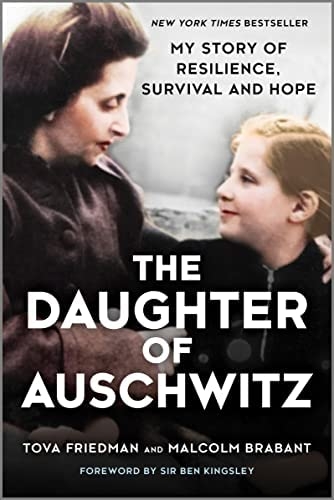Tova Friedman, a Polish American therapist and one of the youngest survivors of the Auschwitz-Birkenau extermination camps, will speak Sunday, Nov. 13, at 5:30 p.m. in Reamer Auditorium at the annual Chabad Kristallnacht Commemoration.
Friedman is the author of “The Daughter of Auschwitz: My Story of Resilience, Survival and Hope,” a memoir co-written with journalist Malcolm Brabant. It has remained on the New York Times bestseller list since its publication earlier this fall.
The event, which includes a book signing, is free and open to the public. It is co-sponsored by the Department of History, Religious Studies Program, Intercultural Affairs, Office of Religious and Spiritual Life, Sigma Delta Tau and Delta Phi Epsilon.
Stephen Berk, the Henry and Sally Schaffer Professor of Holocaust and Jewish Studies, will give remarks.
Friedman’s talk comes at a time of surging global antisemitism. In the United States, antisemitic incidents hit a record high last year, with a 34 percent increase over the previous year.
“It is important that we commemorate Kristallnacht, not only to honor the lives lost but to remember Jewish history and the enduring lessons of the Holocaust,” said Laiky Rubin, adviser to Chabad at Union.
Friedman was born in 1938 in Gdynia, Poland. On Nov. 9-10 that same year, Kristallnacht (the Night of Broken Glass), occurred when German Nazis attacked Jewish individuals and property. World War II broke out a year after Kristallanacht.
When deportations of Jewish children began, Friedman was hidden in a crawlspace above their home’s ceiling. Her father was later sent to the Dachau concentration camp and she and her mother to the Auschwitz Birkenau complex.
More than one million people, mostly European Jews, were murdered at Auschwitz. In 1945, at the age of six, Friedman was one of the youngest of the 7,000 prisoners found alive when she and her mother were liberated by the Soviet Army. A soldier’s photo of her and other children showing their camp identification tattoos later became an iconic image of the war.
Friedman’s father survived Dachau, and after the war, the family came to the U.S. Friedman married, had four children and went on to teach and practice therapy. She holds degrees in psychology, Black literature and social work from, respectively, Brooklyn College, the City College of New York and Rutgers. Now 84, she lives in New Jersey and speaks widely against antisemitism and prejudice.
In 2020, the 75th anniversary of the liberation of Auschwitz, she returned to the death camp with her own family to reflect on her experience.
“You are what Hitler could not kill,” she told her grandchildren.
Last year, her grandson opened a profile for her on TikTok, where she posts videos and answers children’s questions about the Holocaust. The videos have received more than 50 million views.

